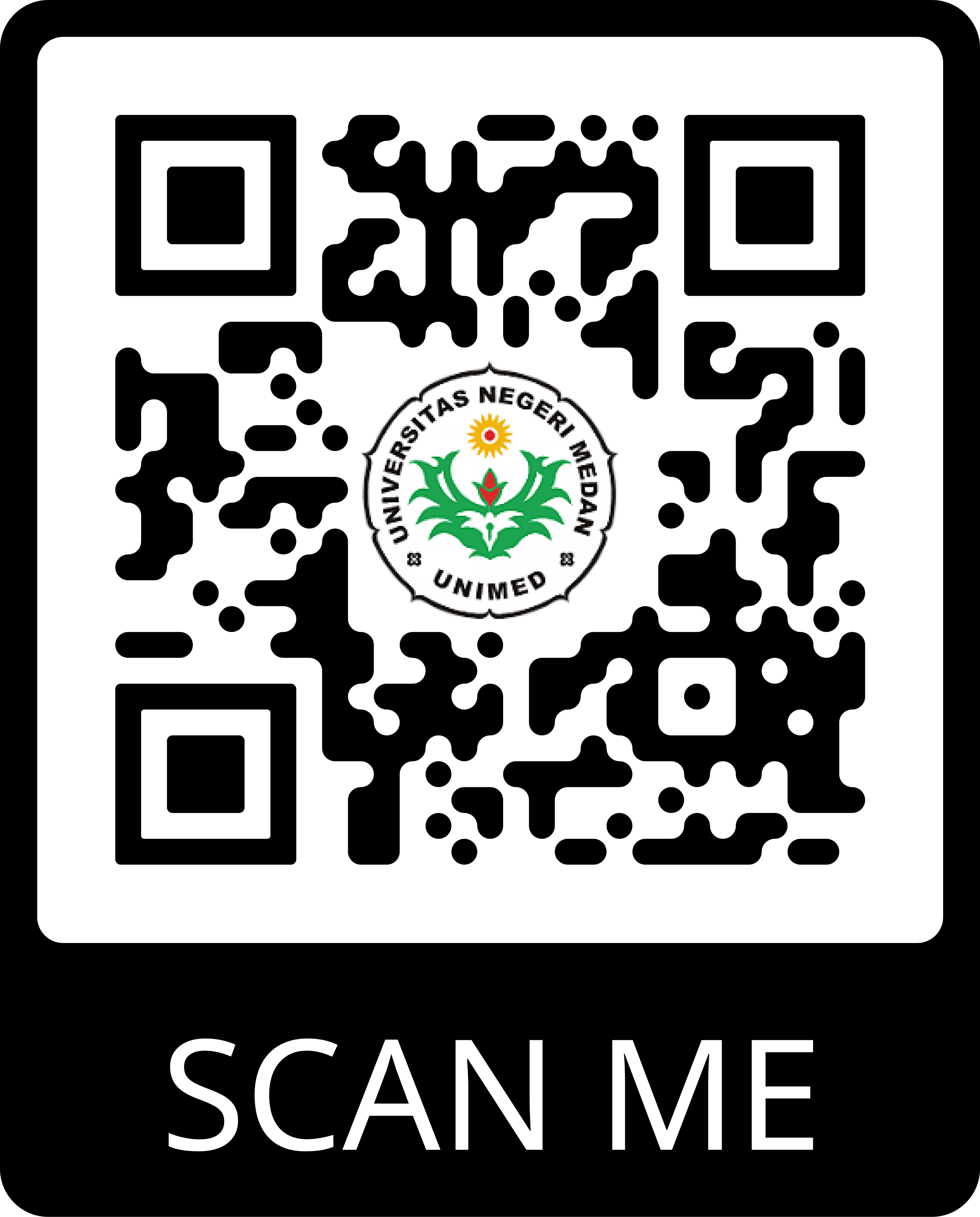PENGGUNAAN GOOGLE CLASSROOM SEBAGAI KELAS VIRTUAL DALAM PEMBELAJARAN FISIKA PADA MATERI SINAR ISTIMEWA CERMIN
Abstract
Keywords
Full Text:
PDFReferences
Adzharuddin, N., & Ling, L. (2013). Learning Management System (LMS) among University Students: Does It Work? International Journal of e-Education, e-Business, e-Management and e-Learning,, 248-252.
Ain, T. (2013). Pemanfaatan visualisasi video percobaan gravity current untuk meningkatkan pemahaman konsep Fisika pada materi tekanan hidrostatis. Jurnal Inovasi Pendidikan Fisika, 97-102.
Aji, S., Hudha, M., & Rismawati, A. (2017). Pengembangan Modul Pembelajaran Fisika Berbasis Problem Based Learning untuk Meningkatkan Kemampuan Pemecahan Masalah Fisika. Science Education Journal, 36-51.
Al-Maroof, R., & Al-Emran, M. (2018). Students Acceptance of Google Classroom: An Exploratory Study using PLS-SEM Approach. International Journal of Emerging Technologies in Learning, 112-123.
Azhar, K., & Iqbal, N. (2018). EFFECTIVENESS OF GOOGLE CLASSROOM: TEACHERS PERCEPTIONS. PRIZREN SOCIAL SCIENCE JOURNAL.
Bhat, S., Raju, R., Bikramjit, A., & D'Souza, R. (2018). Leveraging E-Learning through Google Classroom: A Usability Study. Journal of Engineering Education Transformations, 130-135.
Coskuncay, D., & Ozkan, S. (2013). A Model for Instructors' Adoption of Learning Management Systems: Empirical Validation in Higher Education Context. Turkish Online Journal of Educational Technology.
Dillenbourg, P., Schneider, D., & Synteta, P. (2002). Virtual Learning Environments. Information & Communication Technologies in Education.
Gautreau, C. (2011). Motivational Factors Affecting the Integration of a Learning Management System by Faculty. Journal of Educators Online.
Gerhard, J., & Mayr, P. (2002). Competing in the e-learning environment-strategies for universities. Proceedings of the 35th Annual Hawaii International Conference on System Sciences.
Hamdani, D., Kurniati, E., & Sakti, I. (2012). Pengaruh model pembelajaran generatif dengan menggunakan alat peraga terhadap pemahaman konsep cahaya kelas VIII di SMP Negeri 7 Kota Bengkulu. Jurnal Exacta, 79-88.
Horvat, A., Dobrota, M., Krsmanovic, M., & Cudanov, M. (2015). Student perception of Moodle learning management system: a satisfaction and significance analysis. Interactive Learning Environments.
Iftakhar, S. (2016). GOOGLE CLASSROOM: WHAT WORKS AND HOW? Journal of Education and Social Sciences, 12-18.
Kadriu, A., Trpkovska, Jajaga, E., Alili, H., & Alili, H. (2018). LMS Solution: Evidence of Google Classroom Usage in Higher Education. Business Systems Research, 31-43.
Kakasevski, G., Mihajlov, M., Arsenovski, S., & Chungurski, S. (2008). Evaluating usability in learning management system moodle. TI 2008 - 30th International Conference on Information Technology Interfaces, Dubrovnik, 613-618.
Kanginan, M. (2013). Fisika Untuk SMA/SMK Kelas X. Jakarta: Erlangga.
Lestar, A. (2013). Pengembangan E-Learning Berbasis Learning Management System pada Mata Kuliah Media Pembelajaran. urnal Hasil-Hasil Penelitian, 44-64.
Permata, A., & Bhakti, Y. (2020). Keefektifan Virtual Classdengan Google Classroom dalam Pembelajaran Fisika Dimasa Pandemi Covid-19. urnal Inovasi Pendidikan Fisika dan Riset Ilmiah, 27-33.
Perrotta, C., Gulson, K., Williamson, B., & Witzenberger, K. (2020). Automation, APIs and the distributed labour of platform pedagogies in Google Classroom. Critical Studies in Education, 1-17.
Saifuddin. (2018). E-LEARNING DALAM PERSEPSI MAHASISWA. Jurnal Varadika, 102-109.
Shaharanee, I., Jamil, J., & Rodzi, S. (2016). Google classroom as a tool for active learning. AIP Conference Proceedings.
Shaharanee, I., Jamil, J., & Rodzi, S. (2016). The Application of Google Classroom as a Tool for Teaching and Learning. Journal of Telecommunication, Electronic and Computer Engineering, 5-8.
Stiles, M. (2000). Effective learning and the virtual learning environment. roceedings: EUNIS 2000–Towards Virtual Universities, Instytut Informatyki Politechniki Poznanskiej.
Sutrisna, D. (2018). Meningkatkan Kemampuan Literasi Mahasiswa dengan Google Classroom. Jurnal Pendidikan Bahasa dan Sastra Indonesia, 69-77.
Thuseethan, Achchuthan, & Kuhanesan. (2014). Usability Evaluation of Learning Management Systems in Sri Lankan Universities. arXiv preprint arXiv.
Ventayen, R., Estira, K., Guzman, M., Cabaluna, C., & Espinosa, N. (2017). Usability Evaluation of Google Classroom: Basis for the Adaptation of GSuite E-Learning Platform. Asia Pacific Journal of Education, Arts and Sciences, 47-51.
Wijaya, A. (2016). Analysis of Factors Affecting the Use of Google Classroom to Support Lectures. International Conference on Information Technology and Engineering Application, 61-68.
DOI: https://doi.org/10.22611/jpf.v10i1.23137
Article Metrics
Abstract view : 845 timesPDF - 1134 times
Refbacks
- There are currently no refbacks.
Copyright (c) 2021 Rosynanda Nur Fauziah

This work is licensed under a Creative Commons Attribution 4.0 International License.
___________________________________________________________________________________________________________________________________________
Jurnal Pendidikan Fisika
p-ISSN : 2252-732X | e-ISSN : 2301-7651
Organized by The Magister of Physics Education Departement in State University of Medan in collaboration with Physical Society of Indonesia (PSI)
W: https://jurnal.unimed.ac.id/2012/index.php/jpf/index
E : jpfunimed@unimed.ac.id
rajo.hasim@gmail.com (principal contact)

_____________________________________________________________________________________________________________________________________________

This work is licensed under a Creative Commons Attribution 4.0 International License.





